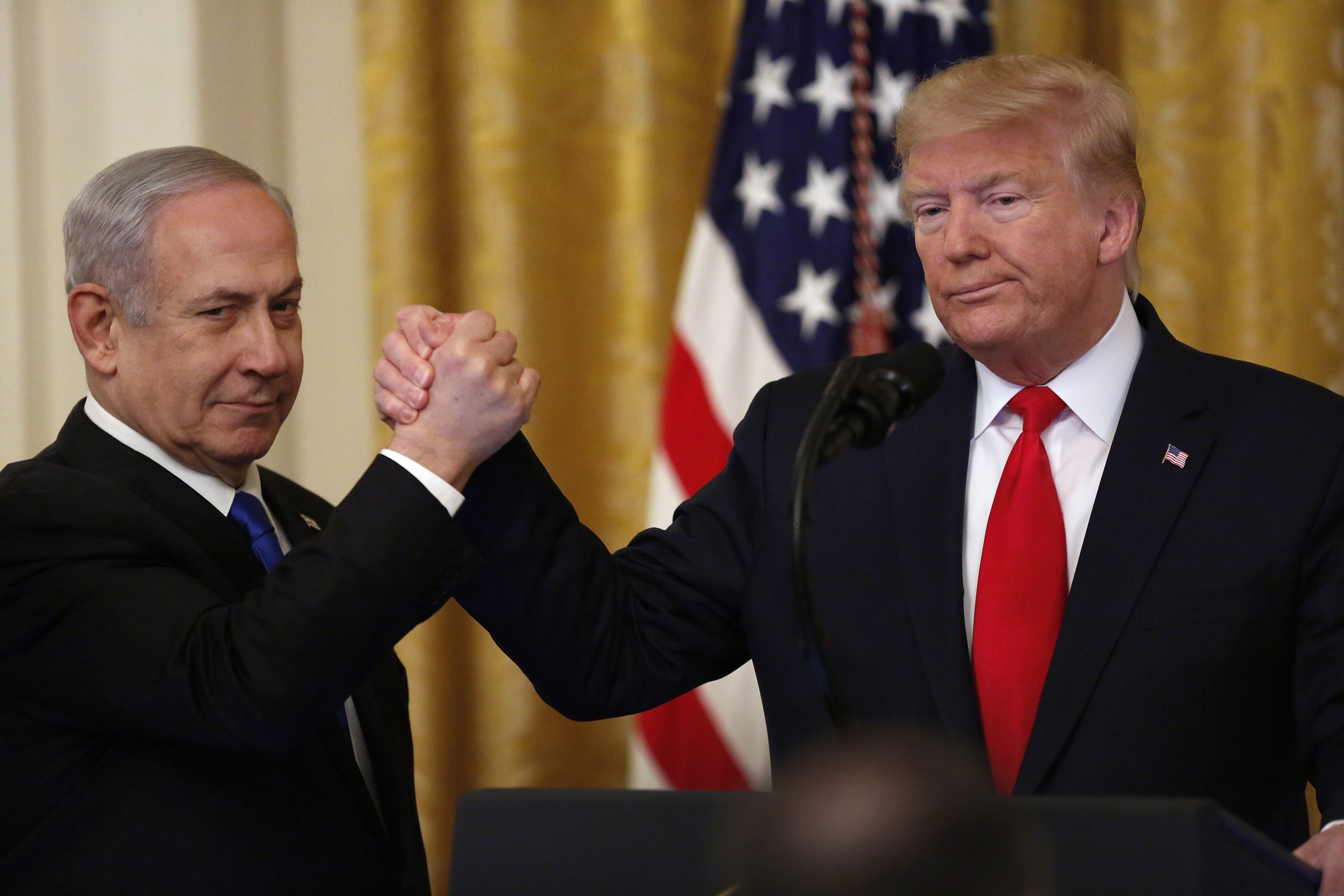A Gift for Israel: The U.S. Peace Plan

What did the U.S. announce?
President Donald Trump, accompanied by high U.S. officials and the Israeli prime minister, announced the possibility of a future Palestinian state on a territory twice as big as now under Palestinian control with Palestinian representation in East Jerusalem. His speech compared with documents released after the speech, however, in reality means Palestinians would lose 20–40% of their legal land and would not have the right to representation in Jerusalem proper—only outside of it in Abu Dis, which was already corroborated in Israeli PM Netanyahu’s speech that followed Trump’s. The American president also suggested the U.S. recognised—against international law—Israeli sovereignty over the Jordan valley and Israeli settlements in the West Bank.
How did Israel react?
Netanyahu, present alongside Trump, enthusiastically endorsed the plan. He assessed the occasion as historic, as the moment the U.S. administration—the “greatest friend Israel ever had in the White House”—recognised Israeli sovereignty over Judea and Samaria (Israeli terms for the occupied Palestinian territories in the West Bank) and Jerusalem, made Palestinian statehood conditional upon the demilitarisation of Hamas, recognised as permanent Israel’s eastern border with Syria and Jordan, and did away with the Palestinian right of return. Netanyahu announced Israel would annex settlement blocks in the West Bank. His main rival in the upcoming March elections, Benny Gantz, also supports the plan, albeit less vigorously. The Israeli political scene is so divided that whatever issue makes one of the two leaders shine will be met with criticism by the other’s supporters.
What will the Palestinians do?
They harshly criticized the U.S. plan and will not even negotiate it. Palestinian President Mahmoud Abbas ordered Palestinian security forces not to intervene in a planned “day of rage” on Wednesday 29 January. Mass protests are expected even though the U.S. plan envisages “1 million new jobs” for the Palestinians and $50 billion worth investments in infrastructure in Israel to connect West Bank and Gaza, and in surrounding countries where Palestinian refugees live (Jordan, Lebanon, Egypt). Since the announcement of the economic part of the plan in June 2019, no country has declared a financial contribution to these investments. The ambassadors of Bahrain, the United Arab Emirates, and Oman were present at the announcement of the plan at the White House, but representatives of major Arab countries—Saudi Arabia, Jordan, Egypt, which are needed for any progress in the peace negotiations—were absent.
What does the plan mean for the international order?
According to international law, the borders of Israel and the Palestinian territories are the pre-June 1967 borders, which has been corroborated numerous times by the UNSC, UNGA, and ICJ. All modifications to these borders are possible only through bilateral Israeli-Palestinian negotiations. The U.S. plan, first and foremost, undermines the international rules- and law-based order. Recognising unlawful annexation gives arguments to those countries that use it (i.e., Russia). It also adds to transatlantic disagreements.
In the longer term, however, the plan creates fertile ground for greater European role in the Middle East. If Trump and Netanyahu retain power, American mediating credibility will remain low. If they lose power, both the U.S. and Israel will change their policies vis-à-vis the Palestinians and the Middle East. In both scenarios, given certain conditions, a new window of opportunity will open for European diplomacy that could be seen as more balanced than the Americans’ and having greater leverage than Russia or China.


